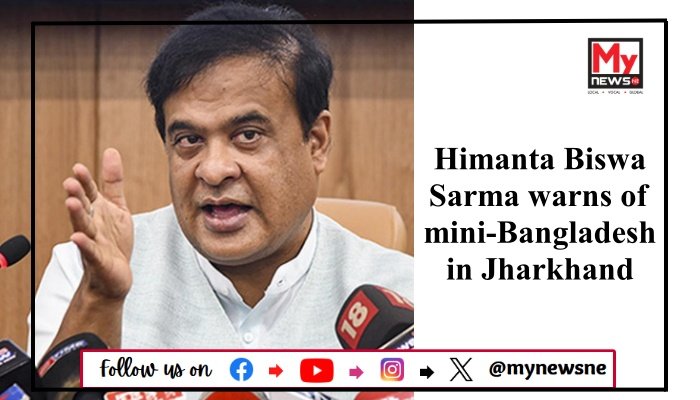Assam CM Himanta Biswa Sarma Warns of Cultural Shift in Jharkhand Due to Infiltration, Outlines BJP’s Strategy
Dumka, Jharkhand — Assam Chief Minister and BJP co-in-charge for the Jharkhand Assembly elections, Himanta Biswa Sarma, voiced concerns over what he described as a growing infiltration issue impacting Jharkhand’s cultural identity and tribal heritage. In a recent rally in Dumka, Sarma warned of potential demographic changes, likening the situation to the creation of a “mini-Bangladesh” in parts of the state, especially the Santhal Pargana region, known for its strong tribal legacy.
Sarma outlined a series of measures the BJP aims to implement should it come to power, including the enforcement of the National Register of Citizens (NRC) to address what he termed the infiltration problem. Highlighting the potential impact on tribal rights, he announced that under BJP governance, children born to tribal women married to immigrants would not qualify for Scheduled Tribe (ST) benefits. Additionally, he proposed measures that would prevent these women from participating in tribal leadership elections, citing concerns over preserving tribal autonomy and traditional influence.
The Chief Minister also called attention to regional leaders such as Irfan Ansari and Alamgir Alam, whom he accused of having disproportionate sway in the Santhal Pargana area. Sarma argued that figures like Ansari should face accountability, particularly pointing to remarks Ansari allegedly made against tribal leader Sita Soren, which he said warrant legal action.
Sarma’s remarks reflect his party’s stance on protecting Jharkhand’s tribal and cultural identity, which he claims is under threat due to illegal immigration. As Jharkhand heads into election season, his statements have intensified debate over the cultural and demographic issues facing the state, especially regarding the implications for tribal communities in regions like Santhal Parganas.

